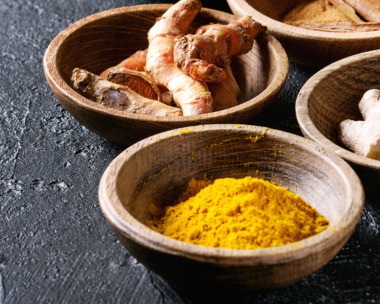If you’re a woman in her 40’s it’s likely that you’ve started to face changes to your body. These changes can have big effects emotionally and physically, but the good news is that a wealth of ongoing research is being conducted into your specific nutrition requirements to best protect your health. Heart Health For a 40 year old woman the risk of heart disease is 1 in 3. Past protection from heart disease is lost and the risk is now similar to that for men. A little known fact is that five times more women die from heart disease than breast cancer. Therefore there is even a greater need now to protect heart health. The range of nutrients shown to help keep the heart healthy include anti-oxidants, phyto-oestrogens, soy protein, folate, dietary fibre and omega-3 fats. Anti-oxidants Populations with low rates of heart disease have diets rich in anti-oxidants such as vitamin E. Interestingly, some studies suggest that the protective effect is only when the Vitamin E is consumed as food not supplements. The Iowa Women’s Health study reported that women who ate at least one serve of wholegrain foods a day had substantially lower risk of dying from heart disease than women who didn’t eat any wholegrain foods. Whether it’s the vitamin E in the wholegrains or a combination of dietary factors that offers this protection is still not clear. In the Lyon diet study, when people were advised to follow the Mediterranean style diet with plenty of anti-oxidant foods such as olive oil, fruits and vegetables, grains, red wine, garlic as well as omega–3 foods and relatively low levels of saturated fat, there was also a dramatic decrease in heart disease risk. Phyto-oestrogens and Soy Protein It appears that diets rich in phyto-oestrogens, specifically soy products may also reduce heart disease. Not only is soy rich in isoflavones (a type of phyto-oestrogen) but soy protein has been shown to lower the LDL ( bad) cholesterol in people who have elevated levels. All the active components in soy and how they protect against heart disease have not been clearly defined. Try to include some soy products in your daily diet. Try a soy smoothie, soy and linseed bread, soy pasta, roasted soy beans or stir fry tofu and vegetables. Folate Scientific research has indicated that folate has benefits other than protecting against having a baby born with a neural tube defect. Folate has also been shown to provide extra protection to coronary arteries in people with raised levels of homocysteine. High levels of homocysteine in the blood have been associated with increased risk of heart disease. Good food sources of folate include citrus fruit, berries, green leafy vegetables, asparagus, fortified breakfast cereals, breads and fruit juices, lean meat especially liver and kidney and vegemite. Dietary Fibre It’s the soluble fibre such as beta glucan found in oats and barley that can lower cholesterol levels by decreasing absorption and increasing cholesterol excretion. To make a significant difference to your levels you need to consume at least 2.9 grams of beta glucan each day. This is provided by roughly 60g of traditional oats, about a large bowl of muesli or other high oat based cereal. Legumes (dried beans and chickpeas) and fruit also contain soluble fibre. Omega-3s Omega-3s help to keep your heart healthy by lowering blood fats such as LDL(bad) cholesterol and triglycerides, lowering blood pressure, reducing the risk of blood clotting and regulating heart beat. The major omega-3s are DHA and EPA found in oily fish and ALA derived form plant sources such as nut and seed oils. There are now a number of omega-3 (DHA) enriched foods such as breads, milk and yogurt and eggs which offer an alternative for people who don’t eat fish.
Health tips and advice for women 40+
If you’re a woman in her 40’s it’s likely that you’ve started to face changes to your body. These changes can have big effects emotionally and physically, but the good news is that a wealth of ongoing research is being conducted into your specific nutrition requirements to best protect your health.




